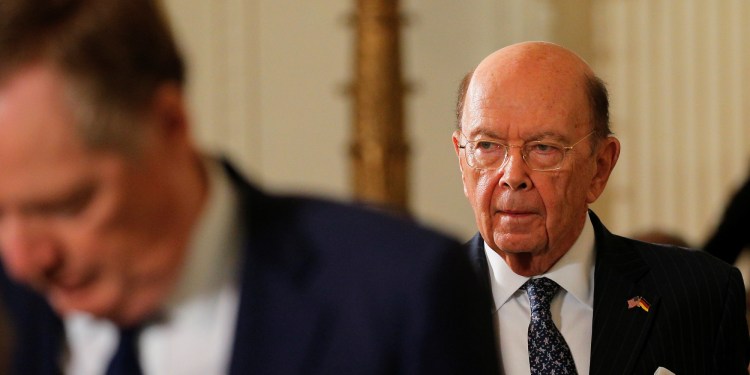(Reuters) — The U.S. commerce secretary said on Tuesday that building a next-generation 5G mobile network was a priority for President Donald Trump’s administration, boosting the argument behind the proposed merger of wireless carriers Sprint and T-Mobile.
“I think the pitch that Sprint and T-Mobile are making is an interesting one, that their merger would propel Verizon and AT&T into more active pursuit of 5G,” Wilbur Ross told CNBC.
“Whoever pursues it, whoever does it, we’re very much in support of 5G. We need it. We need it for defense purposes, we need it for commercial purposes,” he added.
T-Mobile and Sprint said on Sunday they had agreed on a $26 billion all-stock merger, capping four years of on-and-off talks between the third and fourth largest U.S. wireless carriers. Regulators are expected to grill the firms on how they will price their combined wireless offerings.
T-Mobile, majority-owned by Deutsche Telekom, and Sprint, controlled by Japan’s SoftBank Group, said the combined company would invest $40 billion over the next three years to upgrade networks to accommodate 5G.
The Federal Communications Commission said in February it planned new auctions of high-band spectrum starting later this year to speed the launch of next-generation 5G networks.
Carriers have spent billions of dollars acquiring spectrum and are beginning to develop and test 5G networks, which are expected to be at least 100 times faster than current 4G networks and cut latency, or delays, to less than one-thousandth of a second from one-hundredth of a second in 4G, the FCC has said.
Policymakers and mobile phone companies have said the next generation of wireless signals needs to be much faster and far more responsive to allow advanced technologies like virtual surgery or controlling machines remotely.
Shares for Sprint closed down 3.6 percent, while T-Mobile was off 1.8 percent.
T-Mobile Chief Executive John Legere met with two FCC commissioners in Washington on Tuesday to discuss the merits of the deal.
Democratic Senator Ed Markey called for a hearing on the proposed combined company that would have more than 120 million subscribers and be 42 percent-owned by Deutsche Telekom.
“Without sufficient alternatives to the other two major wireless providers, consumers may be left with no option to switch to a provider offering better, more affordable services,” he said.


